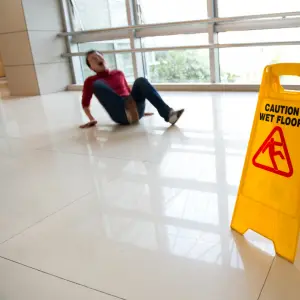What is a Statute of Limitations?
A Statute of Limitations is a law that dictates the timeframe in which a legal action must be pursued. As described by Cornell Law School’s Legal Information Institute, a statute of limitations is a law that “bars claims after a certain period of time passes after an injury.” After the time period dictated by a statute of limitations has passed, and no legal action has been taken following an injury or offense, no future legal action can be pursued.
The length of a statute of limitations varies by jurisdiction and claim. In Pennsylvania, the statute of limitations is two years for personal injury cases, unless the injury happened to someone who was then a minor. In that case, they would have up to two years after their 18th birthday to file a claim. The beginning of the time period in a statute of limitations in a personal injury case typically begins at the discovery of the injury. When the specified time period has passed, cases are almost always dismissed.
Statutes of limitations are meant to encourage timely action by plaintiffs. This keeps potential evidence reliable, and protects defendants from being subjected to unfair proceedings. Statutes of limitations are relevant for both civil and criminal law.
More information about Statute of Limitations
How Much Time Do I Have To Sue After A Slip And Fall Accident?
Statute of Limitations for Slip and Fall Accidents
 The statute of limitations varies by state. For example, in Pennsylvania, slip and fall accidents fall under the broad category of “personal injury,” giving you two years from the date of when your injuries first occurred to file suit. When you suffer injuries from slip and falls, trip and falls, and other similar accidents, 42 Pa.C.S. § 5524(2) states that you have two years from the date of your accident to initiate a lawsuit and seek compensation.
The statute of limitations varies by state. For example, in Pennsylvania, slip and fall accidents fall under the broad category of “personal injury,” giving you two years from the date of when your injuries first occurred to file suit. When you suffer injuries from slip and falls, trip and falls, and other similar accidents, 42 Pa.C.S. § 5524(2) states that you have two years from the date of your accident to initiate a lawsuit and seek compensation.
Slip and fall accidents caused by negligence or the failure of property owners to maintain safe and hazard-free premises can cause severe injury and even death. According to the New York Times, the winter months are worse for people of all ages, as ice, snow, and slippery trip hazards make slip and fall accidents more prevalent. Wherever you are in America, […]
Read MoreMore information about Statute of Limitations
How Long After a Slip and Fall Can You Sue?
Determining When to Sue in a Slip and Fall Case
 The state you live in and laws surrounding personal injury and wrongful death ultimately determines how long after a slip and fall you can sue. While state laws take into account the amount of time it takes to file a claim with insurance, partake in negotiations, and in some cases, go to trial, should you miss the statute of limitations, you lose the right to seek legal recourse against the party who owned the property and caused your injury.
The state you live in and laws surrounding personal injury and wrongful death ultimately determines how long after a slip and fall you can sue. While state laws take into account the amount of time it takes to file a claim with insurance, partake in negotiations, and in some cases, go to trial, should you miss the statute of limitations, you lose the right to seek legal recourse against the party who owned the property and caused your injury.
Learn more about slip and fall statute of limitations and how Munley Law Personal Injury Attorneys can help get the compensation you deserve for your losses.
Pennsylvania, New York, New Jersey, and Delaware Slip and Fall Statute of Limitations
For more than 60 years, the slip and fall attorneys at Munley Law Personal Injury Attorneys have been representing accident victims across Pennsylvania, […]
Read MoreMore information about Statute of Limitations
Can You Sue for a Slip and Fall Accident?
Slip & Fall Accidents are More Common Than You Think
 A slip and fall accident is, essentially, exactly what the name implies: one party is injured when slipping or tripping and falling, usually on another person’s property, due to some sort of hazardous condition. This hazardous condition could be anything from a faulty handrail to uneven pavement to a slippery surface.
A slip and fall accident is, essentially, exactly what the name implies: one party is injured when slipping or tripping and falling, usually on another person’s property, due to some sort of hazardous condition. This hazardous condition could be anything from a faulty handrail to uneven pavement to a slippery surface.
For someone young and healthy, a fall might not sound like much to worry about, but the reality is that the ensuing injuries are often more serious than meets the eye. It’s also a far more common occurrence than you may realize; in fact, more than half a million slip and fall accidents requiring medical care occur in North America each year.
So what can you do if you are injured in a slip and fall accident? Many people may not realize that pursuing legal action is absolutely a possibility. […]
Read MoreMore information about Statute of Limitations
Can I Sue Workers’ Comp for Pain and Suffering?
Exploring Pain and Suffering Workers Comp Claims

After a job injury, there can be damages beyond the physical. If you’re wondering “Can I Sue Workers’ Comp for Pain and Suffering?,” the short answer to this important question is no. The Pennsylvania Workers’ Compensation Act does not allow employees to collect damages for pain and suffering after a workplace accident. According to the law, workers may only collect workers’ comp benefits for medical expenses and lost wages.
However, even though an employee cannot recover pain and suffering damages through workers’ compensation, there are still legal options they should explore. There are certain situations where a worker can file a third-party claim against another party or parties who were responsible for your work-related injury. For example, if you are a construction worker and suffer a work injury due to the negligence of the general contractor, […]
Read MoreMore information about Statute of Limitations
Can I Lose My Job While on Workers’ Compensation in Pennsylvania?
A Lawyer Can Help Navigate Workers Comp Process
 If you’ve been injured on the job, you may be stressed and wondering “Can I lose my job while on workers compensation in Pennsylvania?” The Pennsylvania workers’ compensation program can seem confusing and intimidating to an employee, especially if you’re trying to navigate it on top of dealing with a workplace injury. We will break down exactly what workers’ compensation is, how you can access it, and what to do if you’re facing termination in the process of your claim.
If you’ve been injured on the job, you may be stressed and wondering “Can I lose my job while on workers compensation in Pennsylvania?” The Pennsylvania workers’ compensation program can seem confusing and intimidating to an employee, especially if you’re trying to navigate it on top of dealing with a workplace injury. We will break down exactly what workers’ compensation is, how you can access it, and what to do if you’re facing termination in the process of your claim.
Aside from seeking medical attention for your work injury, the most important thing you can do to protect yourself is hire an experienced Munley Law Personal Injury Attorneys workers’ compensation attorney to help protect your rights. Munley workers’ comp lawyers offer a free consultation to prospective clients where they will answer any question you have regarding your claim. […]
Read More








